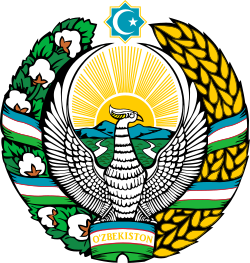CLASS+ INTERDISCIPLINARY MASTER PROGRAM ON COMPUTATIONAL LINGUISTICS AT CENTRAL ASIAN UNIVERSITIES 2017-2020
The Program Website: http://erasmus-class.eu/consortium-tsuul/
Research Area: Linguistics, Language Technologies
Timing: October 2017 – October 2020
Location: Spain, Uzbekistan, Poland, Greece
OVERVIEW
The three-year European Project CLASS [Interdisciplinary MA Program on Computational Linguistics at Central Asian Universities] has been approved under Erasmus+ Program.
Photo by TSUULL
The Program is being done under the initiatives of Uzbekistan and Kazakhstan universities to enhance access to higher education with blended courses in Computational Linguistics Master Program (MA) for students with Linguistics and Computational Science background. A strong collaboration between academic community in the field of Linguistics and Computational Technology both from European Union (EU) and Central Asian (CA) Universities was established and maintained: the experts shared their expertise for the benefits of Master Students, seeking for efficient ways of intercultural dialogue and therefore easier integration into the world economy.
The result of the effort under the CLASS+ Program is the development of new Postgraduate Programs in the field of Computational Linguistics at Central Asian Universities with modern Сourse outlines as well as materials for blended learning. The programme ends by the end of 2021 after a six-month extension due to COVID-19 pandemic. We hope the established cooperation between all Partners will continue particularly in Central Asian countries.
Participants discussing the details of the course. Photo by TSUULL.
PARTICIPANTS
The consortium of the Program consists of:
- 5 European Universities:
University of Santiago de Compostela-USC and University of A Coruna-UDC from Spain; University of West Attica-UNIWA from Greece; University of Porto-U.PORTO from Portugal; Adam Mickiewicz University-AMU from Poland
- 4 Universities of Uzbekistan:
Tashkent State University of the Uzbek Language and Literature-TSUULL; Urgench State University-UrSU; Samarkand State Institute of Foreign Languages-SamSIFL; The National University of Uzbekistan-NUUz
- 3 Universities of Kazakhstan:
A.Baitursynov Kostanay State University-KSU; L.Gumilev Eurasian National University-ENU; Al-Farabi Kazakh National University-KazNU
The main Program Coordinator is the Spanish University of Santiago de Compostela.
ACTIVITIES
During three years of the Program meetings have been held between all the Partner Universities both for the development of cooperation and for Professor staff education capabilities of the Central Asian Universities who would teach in the new Postgraduate Programs.
TSUULL University Delegation to Program Activities at University of Santiago de Compostela: Doston Isrofilov, Theory and Translation Department Student; Saodat Ashurova, Uzbek Philology Department Student; Team Lead Nilufar Abdurakhmonova; Applied Philology Faculty Dean Saodat Mukhammedova, Lecturer Nazrulla Akhmedov. Photos by TSUULL
Program activities can be divided into:
(a) Kick-off Meeting in Spain
It took place at the University of Santiago de Compostela in February 2018 where the Steering Committee had been defined and the Program Action Plan was approved by all Partners.
Photo by TSUULL
(b) Study Session at University of A Coruña (Spain)
The course has employed a blended learning methodology using the Moodle platform. 34 Central Asian Professors and staff have participated in the study session activities. The subjects have been Blended Learning, Linguistics, Natural Language Processing and Quality Assessment provided by 9 experts in each of the topics from the University of A Coruña. All of them are necessary subjects to train the Central Asian staff to implement multidisciplinary Master’s Programs in Computational Linguistics as the ultimate goal of the Project.
Photo by TSUULL
(c) CLASS+ Meeting in Uzbekistan
By November 2018, the Partners met again in Tashkent, the capital city of Uzbekistan, and an assessment of what had been done up to then and the approval of the Action Plan for the next year took place.
Photo by TSUULL
(d) Training-course at Adam Mickiewicz University in Poland
In May 2019 at Adam Mickiewicz University in Poznan the training-course on creating methodologies for developing NLP (Natural language processing) tools was organised for Central Asian Universities academic community. The NLP Department Professors are conducting lectures, seminars and workshops on issues as WordNet like a lexical database, machine translation, application of ontologies in E-learning and information systems, correcting errors of ASR (Automatic Speech Recognizer), Natural Language Processing techniques in application to the analysis of literary art works, introduction to acoustic phonetics, multilingual dictionary and relational database, basic Linux tools for text processing.
Photo by TSUULL
(e) Steering Committee Annual Meeting at University of West Attica in Greece
In September 2019 the Annual meeting of the Steering Committee was held in Athens where the evaluation of the program and the progress of the different packages that were under development such as the development of NLP tools and the blended learning materials were discussed.
Photo by TSUULL
(f) Distance Learning Materials
Due to the COVID-19 pandemic the planned live meetings did not take place, but the Program continued remotely with support of EU partners to their CA colleagues for the smooth production of program deliverables. Also the teaching materials of the Postgraduate Programmes have been adapted as the courses at the Universities of Central Asia are now taught remotely.
(g) Conference at TSUULL University on ‘Computerization of Turkic Languages-2018 - Computerization of Turkic Languages’ in Uzbekistan
Scholars from 11 European and non-European countries as Turkey, Portugal, Spain, Greece, Finland, China, Azerbaijan, Kazakhstan, Kyrgyzstan, Turkmenistan, Russia visited Tashkent to participate in an international Conference belonging to Computational Linguistics.
PROGRAM OUTCOMES
Through the Project events TSUULL University directly connects with Partners and gets fully immersed into the context. Implementation of new teaching methods and ICT-based practices will make education accessible for more students. They will be able to access learning materials, teacher interaction with digital tools. Thus the project tackles regional priorities: learning and teaching tools: blended courses; access to higher education, international cooperation at regional level. Below is the Project’s results:
- Interdisciplinary Master Program in Computational Linguistics implemented in 7 Universities of Uzbekistan and Kazakhstan under careful analysis of existing programs. This MA Program is also opened at TSUULL University as a CLASS+ Partner ‘Computer Linguistics’: it offers students in-depth knowledge of linguistic typology and sociolinguistics – therefore this is a training for those who are able to work with Language Data, build models and process them as part of contemporary linguistic theories as well as solve various problems in Applied Linguistics.
- Blended Learning Technology in Partner Universities within Computational Linguistics Master Program for better learning opportunities and democratisation of higher education created;
- Linguistic resources, tools and applications with good support are open for the Uzbek and Kazakh languages;
- The articles about the CLASS+ Project evaluation and implementation were published by the University Partners including TSUULL University
PUBLICATIONS
1. Project Info
2. CLASS+ Project on European Regional Development Fund Website
3. Erasmus+ Project Experiences on the Computational Linguistics Master Degree in the Central Asia Universities // INTED Proceedings, 2020




